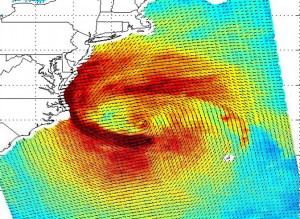 Can’t wait for next Tuesday. I want all the election commercials to be over. They are mostly lies and misinterpretations and sometimes outright silly, childish and stupid. Whereas the election season helps the the mass media and several local economies in the battleground states, the scale of it (about a billion dollars for presidential election alone) is repulsive. I don’t see this improving. In other words, I don’t see this election bubble bursting any point soon. I will be watching the results on Tuesday night and catching a 5:30 AM flight to Denver to attend the EDUCAUSE Annual Conference. Depending on how close the election is, I may or may not get any sleep Tuesday night. I wonder if any economist has bothered to calculate the productivity loss during the presidential election year.
Can’t wait for next Tuesday. I want all the election commercials to be over. They are mostly lies and misinterpretations and sometimes outright silly, childish and stupid. Whereas the election season helps the the mass media and several local economies in the battleground states, the scale of it (about a billion dollars for presidential election alone) is repulsive. I don’t see this improving. In other words, I don’t see this election bubble bursting any point soon. I will be watching the results on Tuesday night and catching a 5:30 AM flight to Denver to attend the EDUCAUSE Annual Conference. Depending on how close the election is, I may or may not get any sleep Tuesday night. I wonder if any economist has bothered to calculate the productivity loss during the presidential election year.
On the other hand, we know that a ballpark estimate for the cost of Hurricane, SuperStorm or FrankenStorm Sandy (The picture on the left is from: http://www.nasa.gov/mission_pages/hurricanes/archives/2012/h2012_Sandy.html) is $20-$60 Billion. It was amazing to watch it unfold on TV. Here is a case where the science is really making a difference – well, up to a point. Knowing about it ahead of time, modeling its path etc. have come a long way and predictions about Sandy were extremely good. This of course helped with the evacuations, cancellations of NY City Subway etc. etc. However, there was nothing anyone could do to reduce or stop the devastation that Sandy caused. The sheer power of nature unfolded right before our eyes and ears and even the politicians took a pause. In NJ, at least for a short moment, it appeared that the NJ Governor, a Republican, and the President came together. Of course, the skeptics see some hidden agenda here.
Wellesley closed on Monday, a rare occurrence for a residential liberal arts school. Our emergency management team was in action in the background. Lisa Barbin, the Chief of Campus Police did a tremendous job bringing everyone together and managing the process. Thankfully, Sandy was kind to Massachusetts and therefore Wellesley did not suffer much. In terms of technology, many of our critical technologies are no longer on campus – Google Apps and Sakai are outsourced. So, our major concern was the network connectivity and we survived that one. Many of our friends who live in NJ are still affected. Events like this exposes our reliance on electricity and modern technologies.
Not having electricity means no refrigerators, or microwave ovens amongst million other things we rely on. Last year when we had the outage, I used the outdoor grill to make coffee and warm up some food as well as attempt to cook some. But then, we ran out of gas and we could not get gas anywhere. Not having running water is such a huge inconvenience and it really tests our patience in many ways. Minimally, we should pause and think about the millions in the world who do not have access to running water, which we consider a basic necessity.
Most of us no longer have a landline phone, so when the cell phone runs out of battery, you are completely cut out in terms of communication. However, in many places, cell towers are still down, so having a cell really doesn’t help. This is a serious cascade resulting in disaster. And if you believe in the theory that we are causing serious damage to our environment (which I believe in), predictions are that events such as Sandy are going to be far more frequent than before.
My online classes are keeping me very busy on weekends and I am attending the Environmental Studies class as much as possible. We had an interesting discussion regarding Bioprospecting and what it means to the environment. It turns out that scoping the rainforests in the world for medicinal herbs or understanding how certain cultures are using them continues to yield a significant number of new medicines. The search for the magical medicine in chemistry labs has a very low success rate. So, the debate is all about how best to capture the real cost of any of these. One of the assignments was to listen to this TED talk by Pavan Sukhdev on “Put a value on Nature!”
Whereas it is an exciting talk with great ideas, we debated the merits of the methods suggested by him. For eg. If the rain that falls in some of the south american countries resulted from what happens in the rainforests of Brazil, shouldn’t Brazil be compensated for it? So, someone asked, what happens if the rain stopped coming? Should Brazil then pay for the losses?
Not sure where Sandy originated. Should we pay to that country for all the water we got from Sandy but then turnaround and pass the cost of rebuilding for sending Sandy our ways? If the storm originated in international waters, should it be UN or IMF that should bear responsibility for this?